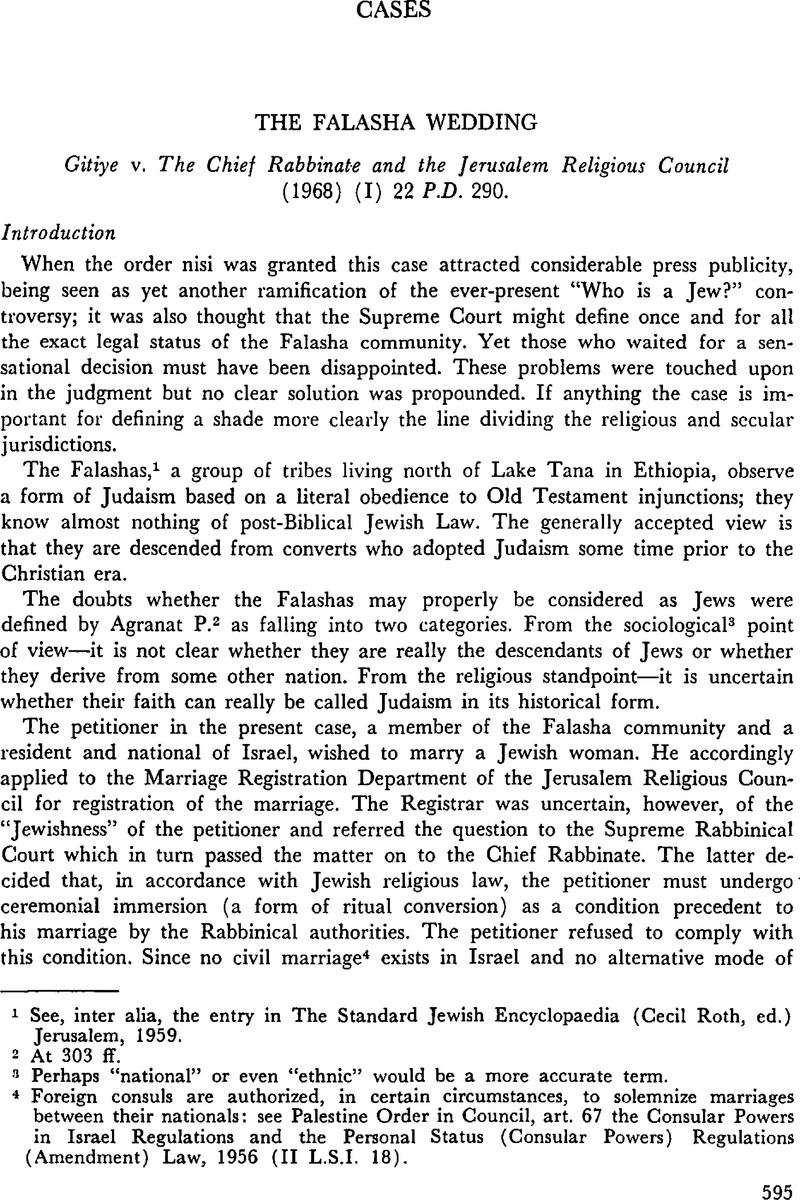No CrossRef data available.

1 See, inter alia, the entry in The Standard Jewish Encyclopaedia (Cecil Roth, ed.) Jerusalem, 1959.
2 At 303 ff.
3 Perhaps “national” or even “ethnic” would be a more accurate term.
4 Foreign consuls are authorized, in certain circumstances, to solemnize marriages between their nationals: see Palestine Order in Council, art. 67 the Consular Powers in Israel Regulations and the Personal Status (Consular Powers) Regulations (Amendment) Law, 1956 (II L.S.I. 18).
5 7 L.S.I. 139.
6 (1963) 17 P.D. 225.
7 2 L.S.I. 103 Now replaced by the Population Registry Law, 1965 (19 L.S.I. 288).
8 The Registration Officer's powers have since been somewhat enlarged. See the Population Registry (Amendment) Law, 1967. 509 Book of Laws, 5727, p. 145 (Hebrew only).
9 At p. 296.
10 (1964) (IV) 18 P.D. 309.
11 4 L.S.I. 114.
12 (1962) 16 P.D. 2428.
13 At p. 2438.
14 On this topic see Chigier, M., “The Rabbinical Courts in the State of Israel” (1967) 2 Is.L.R. 147 at p. 174 ff.Google Scholar, and Rubinstein, Amnon, “Law and Religion in Israel” (1967) 2 Is.L.R. 380Google Scholar.
15 Courts Law 1957, sec. 7(b) (2) (11 L.S.I. 157).
16 Courts Law, sec. 7(b) (4).
17 (1964) (III) 18 P.D. 502.
18 (1964) (II) 18 P.D. 324.
19 A certificate of compliance with Jewish religious laws, concerning food.
20 (1964 (1) P.D. 594.
21 13 L.S.I. 152. Sec. 5 provides that where the law applicable to the new marriage is Jewish religious law, a person shall not be convicted of an offence under sec. 2 (i.e. bigamy) if the new marriage was contracted after permission to marry had been given him by a final judgment of a Rabbinical Court and the judgment had been approved by the two Chief Rabbis of Israel.
22 At p. 301.